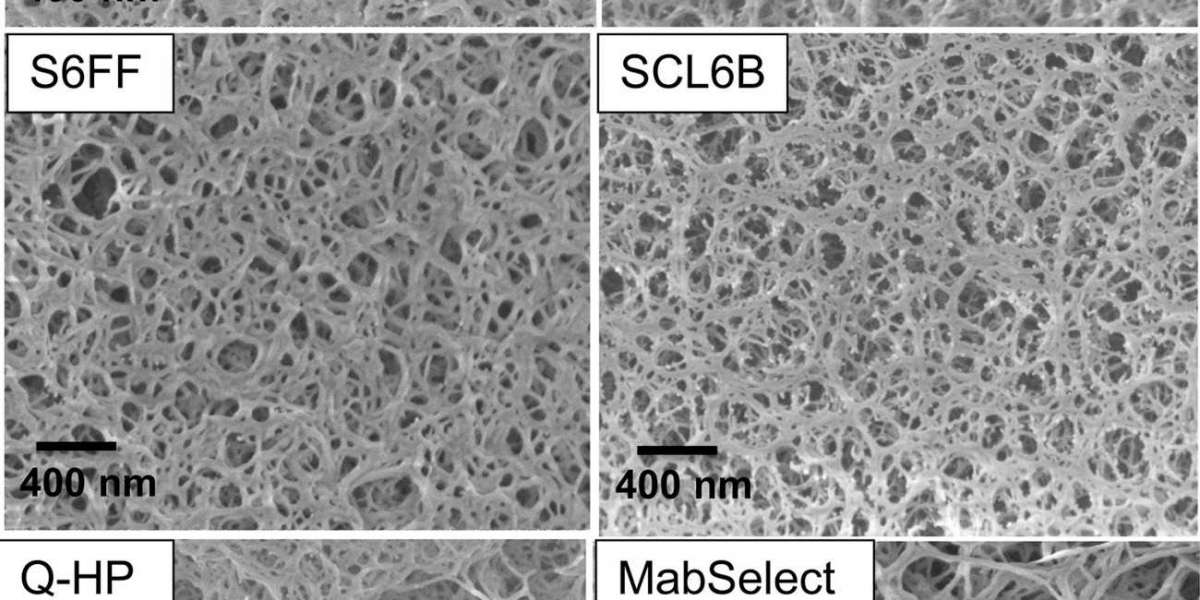With years of experience in the pharmaceutical and life science sectors, CD Bioparticles proudly announces the launch of its new Functional Agarose Particles designed for a variety of applications in the field of bioconjugation, isolation, and purification of biomacromolecules. These particles are ideal for researchers working in areas such as protein purification, antibody production, and nucleic acid isolation.
CD Bioparticles offers a range of functional agarose particles that can be used to covalently capture tagged biomolecules, such as tagged proteins, or to immobilize proteins and antibodies. They can also serve as hydrophobic chromatographic separation media, immobilized metal ion affinity chromatography resins, ion exchange chromatography resins, etc., which are suitable for conjugation of antibodies, streptavidin, enzymes and nucleic acids to activated agarose particles. They also play a critical role in the production of recombinant proteins and the purification of monoclonal antibodies. They are an important carrier tool in molecular biology and medical research, and their importance extends to biopharmaceutical and industrial engineering applications.
The new functional agarose particles are available with a variety of functional groups, including hydrophobic, ion exchange, and affinity chromatography groups. This allows researchers to choose the particles that best suit their specific needs. For example, the hydrophobic interaction chromatography (HIC) separation particles (functionalized with butyl, phenyl, octyl) can be utilized to separate proteins based on their hydrophobicity, while the immobilized metal affinity chromatography (IMAC) particles (functionalized with Al-NTA, Co2+, Co-IDA, Co-NTA, Cu-NTA, Fe-NTA, IDA, Ni2+, Ni-IDA, etc.) can be used to purify and enrich proteins such as His-tagged proteins.
In addition, agarose particles functionalized with DEAE, sulfopropyl, carboxymethyl, quaternary ammonium can be used as IEC resins with high ion exchange capacity and less nonspecific adsorption, which can be applied in the laboratory preparation of biomolecules such as proteins, nucleic acids and peptides. Activated agarose particles (functionalized with azide, alkyne, methyltetrazine, TCO, disulfide, etc.) can also be used for coupling of biomolecules.
The new functional agarose particles are available in a variety of sizes, ranging from 25 µm to 400 µm. In addition to their wide range of functionalities and sizes, these functional agarose particles offer a unique combination of properties that make them ideal for a broad range of applications, including excellent chemical stability, high yield and customizability. These particles can selectively bind to specific biomolecules, and this targeted binding capability streamlines the purification process, reducing time and effort for researchers.
CD Bioparticles’ Functional Agarose Particles are available in a variety of configurations to meet the specific needs of each research project. These particles offer superior efficiency and selectivity, enabling researchers to achieve faster and more accurate results. The company also offers custom bead development services to create particles tailored to unique applications. For more information, please visit https://www.cd-bioparticles.com/products/functional-agarose-particles-1065.html.
About CD Bioparticles
CD Bioparticles is a leading manufacturer and supplier of various nanoparticles, microparticles, and coatings for RD as well as commercialization across different application areas, including in vitro diagnostics, biochemistry, cellular analysis, cell separation, and immunoassay. The company also offers various custom services, including chemical surface-functionalization, fluorescent modification, antibody immobilization, as well as nucleic acid and oligo conjugation to meet client specifications.







